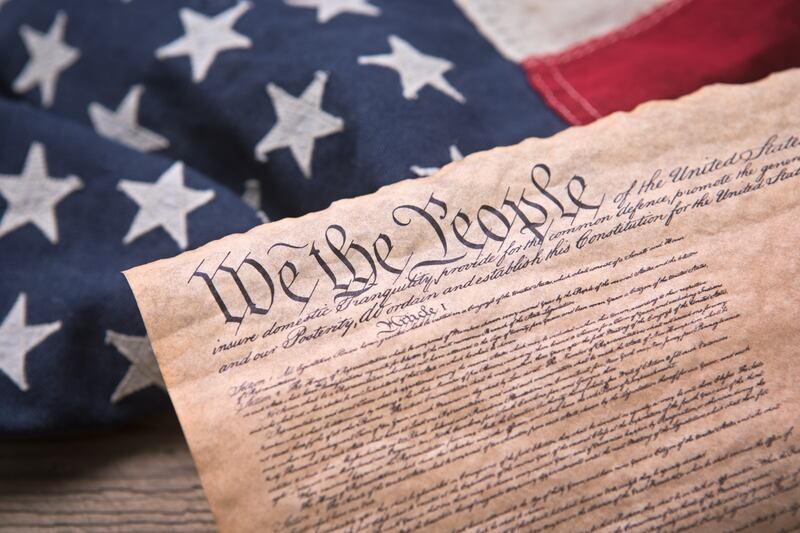For people of faith, commitment to the Divine is at the very core of our lives. For that reason, we cherish the religion clauses of the First Amendment to the U.S. Constitution, which protect our sometimes bungling efforts to live our faith. The religion clauses not only create a safe space for us to worship, but they also guarantee that we can live our faith in the public square.
And yet we worry. These protections are fragile in the best of times, and we are not living in the best of times. A survey of history reveals that protecting the religious freedom and rights of conscience of others does not come naturally to most.
We know the history of religious persecution in the United States and elsewhere, and we see the reality of religious persecution in many places in the world today. We are anxious about a massive societal change underway in the United States in which our fellow citizens are becoming increasingly secular, and we fear that they may be less appreciative of the role of religion in the lives of believers and more skeptical than ever that religion can be a force for societal good.
The founders of our nation valued religious expression and gave it a special status. Will our contemporaries see religion in that same light?
What should people of faith do to preserve their religious freedom against such trends and views? Court challenges to restrictions on the free exercise of religion have been largely successful, and every member of the current Supreme Court has displayed a deep appreciation for the unique and important role of religion in the Constitution and in the life of our nation.
But relying on legal protections that “We the People” negotiated at the founding will not be enough. We must make the case to our fellow citizens through our words and deeds that religion can play a positive role in helping us “to form a more perfect Union.”
On this count, we have fallen short. Too often, we have used our religious commitments to divide, not unite; to build walls of separation, not bridges of understanding; to fan the flames of the culture wars, not to be agents of reconciliation. Many hear in the phrase “religious freedom” code words that justify bigotry and hatred.
I’m reminded of the humorous cartoon that pictures St. Peter greeting a new arrival at the Pearly Gates. “You were a believer, yes,” says a less-than-welcoming St. Peter. “But you skipped the not-being-a-jerk-about-it part.”
The Latin root of the word “religion” means “to bring together.” It’s the same root for the word “ligament.” Just as a ligament allows bones to work together, religion at its best unites humans with the Divine in what Christians refer to as the vertical pull of the Atonement of Christ, and with one another — the horizontal pull of the Atonement. When others see people of faith using religion in these ways, perhaps they will be more sympathetic to our need for religious freedom.
The late Michael Gerson, who sadly died recently, observed that America’s heroes are “heroes of unity,” men and women who understand that the animating spirit of the Constitution is not the contempt for others that infects much of our public discourse, but is, rather, a commitment to create and strengthen what Abraham Lincoln called our nation’s “bonds of affection.” Only people of faith animated by that spirit will preserve the freedom of religion. This is hard work, to be sure, but we can do hard things.
Thomas B. Griffith is a former federal judge of the U.S. Court of Appeals for the District of Columbia Circuit and a fellow of the Wheatley Institute.


 alt=Thomas B. Griffith
alt=Thomas B. Griffith